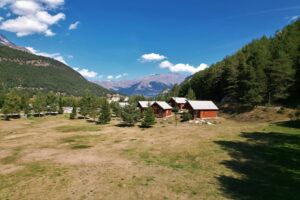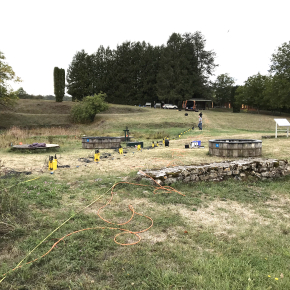Séminaire
Maar lakes as observatories of climate-groundwater-anthropic interactions in Central Mexico
Raul A. Silva Aguilera
Raul A. Silva Aguilera est doctorant à l’Université autonome de Mexico.
Description
Groundwater and surface water are a single complex and interacting system depending on geological, climatic, and hydrological factors, among others. In the context of global change, anthropic activities are an additional forcing in the groundwater-surface water interaction (GW-SW-I) systems, which may impact water quality, quantity, and ecosystems health. A commonly impacted variable in lakes is water level. Several lakes worldwide have shown water level decline trends and total desiccation in recent decades, particularly in arid regions.
Maar lakes are a type of closed lakes (lacking surface runoff) specially connected to groundwater flow systems due to their geological configuration and depths. In lakes where groundwater is relevant in the water balance, water level behavior integrates the dynamics of hydrometeorological and hydrogeological variables occurring at different time scales. Understanding the relative effects of the climatic, hydrogeological, and anthropic factors on the longterm water level dynamics of lakes is fundamental to manage and preserve these ecosystems.
The maar lakes Alchichica, Atexcac, Quechulac, and La Preciosa, located in a semi-arid endorheic basin in central Mexico, have unique ecological characteristics and unparalleled biodiversity and endemicity. These lakes water level has declined at least since the 1960’s, which is evidenced by the subaerial exposure of the microbialites boarding three of them. Some explaining factors of the water level declines mentioned by both locals and scientist are climate change and the intensive groundwater exploitation for irrigation that developed in the basin since the 1980’s.
On the other hand, paleoclimate records reveal a drying trend in climate during the last 4,000 years in Central Mexico. For this reason, it has been suggested in some government forums that the water level declines are an effect of « natural climate evolution », an argument often used to justify changes potentially caused or exacerbated by anthropogenic activities; however, there was any long-term study addressing this question. In this talk, some results from a research project that i) explore the groundwater-surface water interaction occurring in these lakes and that ii) explores the relative contributions of the factors assumed to affect the lakes’ water levels are presented.
The used approaches are hydrogeological monitoring, hydrogeochemical and stable isotope tracers, and analysis of long-term datasets of meteorological variables, lakes and groundwater levels, and largescale climate phenomena indices. The CSO maar lakes represent a natural laboratory that provides some insights about long-term changes in coupled natural human systems.
Informations supplémentaires
Lieu
Laboratoire METIS
Sorbonne Université, Campus Pierre et Marie Curie
4, place Jussieu 75005 Paris
Salle Darcy, tour 46-56, 3e étage.
Lien zoom
https://us02web.zoom.us/j/82999847815






